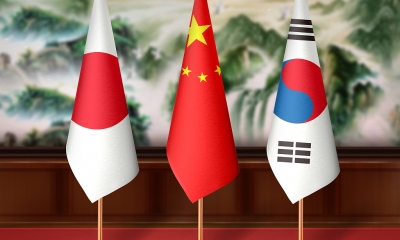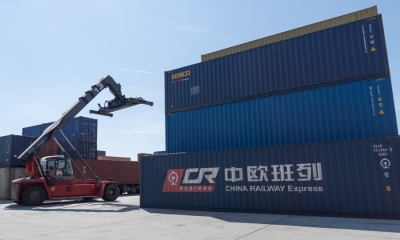The Shangri-La Dialogue Exposes U.S. Indo-Pacific Strategy on China
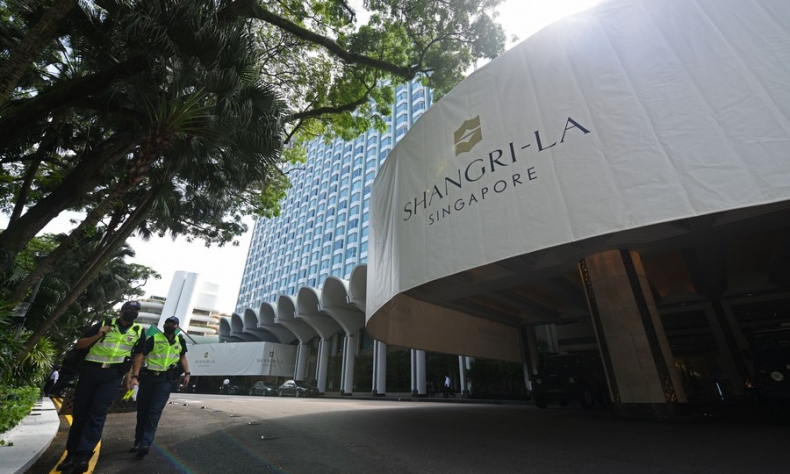
It seems American leaders continue to believe Shangri-La actually exists, and it is a place where peace and tranquility can be found only if the U.S. is in control.
If you were to ask Americans “what is Shangri-La”, those who know would tell you about the fictional utopia in James Hilton’s book Lost Horizon. The book, written in 1933, describes Shangri-La as a place in the Kunlun Mountains where isolation had brought about perfection.
Now, if you were to ask Americans “what is the Shangri-La Dialogue”, they would look at you with a blank stare. Such is the state of the knowledge too many Americans have of international affairs. Bombarded daily by stories about crime, misery, celebrities, entertainment and sports too isolate themselves in information echo chambers, too many Americans know precious little about the world in which almost eight billion people live. And that means they would have no idea that in recent days the Shangri-La Dialogue has demonstrated anything but utopia and harmony.
The Shangri-La Dialogue is Asia’s most important military defense conference, and this year the ever-widening rift between the United States and China about security in the Indo-Pacific region and about Taiwan has been on full display. Taking place in Singapore, the conference has included all-too-familiar remarks from a prominent U.S. official. That official is Secretary of Defense Lloyd Austin, who addressed the conference a couple of days ago.
In his speech, Secretary Austin delivered the same rhetoric used by President Joe Biden and Secretary of State Antony Blinken about America’s commitment to partnering with regional countries to defend the Indo-Pacific and Taiwan, suggesting such an alliance was necessary because China continues to maintain an aggressive posture in that area.
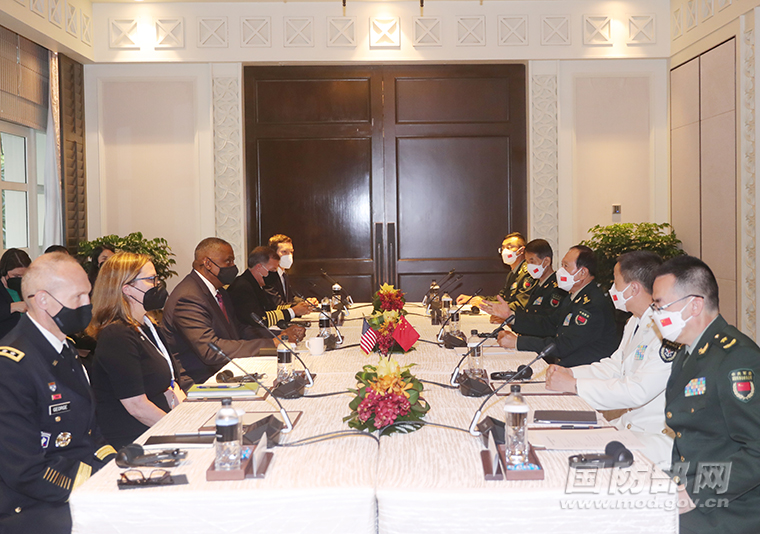
Of course, Secretary Austin said all the right things about China and its place on the global stage. Soon, his tone changed. In examining the region, he suggested China was adopting “a more coercive and aggressive approach to its territorial claims.”
Next, he affirmed that the U.S. acknowledges the “one-China policy” [China uses one-China principle in official statements], but he then delivered his shot. Referencing the People’s Liberation Army (PLA) and the People’s Republic of China (PRC), he said, “We’ve witnessed a steady increase in provocative and destabilizing military activity near Taiwan. And that includes PLA aircraft flying near Taiwan in record numbers in recent months—and nearly on a daily basis. We remain focused on maintaining peace, stability, and the status quo across the Taiwan Strait. But the PRC’s moves threaten to undermine security, and stability, and prosperity in the Indo-Pacific.”
If his words seem familiar, they are: It was only a couple of weeks ago that Secretary of State Blinken said the United States government firmly believes China is attempting to undermine the global world order, of which the U.S. has been the hegemon for roughly 80 years. President Biden has upped the stakes even higher by saying more than once that “the U.S. would intervene militarily should China invade Taiwan.”
These types of comments ignore China’s affirmed position that national reunification between the mainland and the island, whenever it happens, should come by peaceful means. Roughly six months ago, President Xi Jinping, speaking to a domestic audience, said, “Reunification through a peaceful manner is the most in line with the overall interest of the Chinese nation, including Taiwan compatriots.”
Obviously, U.S. officials are not part of those “compatriots,” and as a result they must continue to stir up controversy about China’s intentions. Such controversy generates good headlines for America’s political class. Such controversy makes the president of the United States appear tough. Such controversy keeps the military-industrial complex fabulously rich. Such controversy distorts reality. Such controversy ensures a majority of U.S. citizens stay in the dark about China’s reasonable goals.
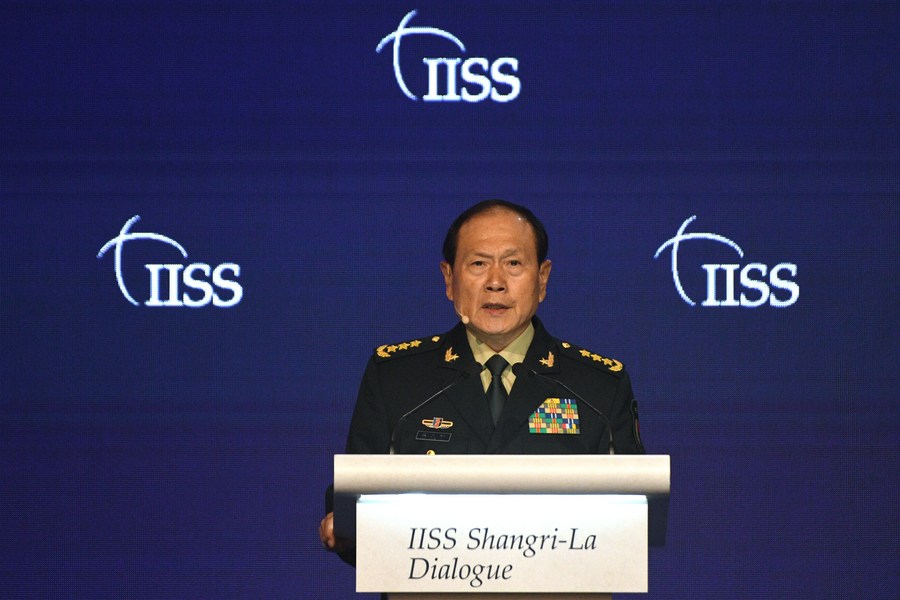
So, the familiar game, which is neither enjoyable to watch nor one that will bring about a winner, continues: American government officials blast China, and Chinese officials respond. On Sunday, during his remarks to the Shangri-La Dialogue conference, Chinese Defense Minister Wei Fenghe reiterated his country’s opinion that the U.S. is the belligerent nation.
He said America’s insistence on an Indo-Pacific strategy is an effort “to hijack countries in our region and target one specific country. It is a strategy to create conflict.”
Defense Minister Wei reminded his audience – correctly – that “Taiwan is first and foremost China’s Taiwan.” As a result, he said, “If anyone dares to secede Taiwan from China, we will not hesitate to fight. We will fight at all costs. And we will fight to the very end.”
As strong as this message is, there was another being delivered. And it is one that puts into question just how much support the U.S. has in the region. It is reported multiple countries are unwilling to accept America’s position that China is the neighborhood bully. One expert confirmed that the U.S. must understand that countries in the region do not want to pick sides and they will not automatically support the U.S. or oppose China.
Remember, it was only a few weeks ago that President Biden was making a big deal about U.S. plans to offer $150 million in assistance to multiple Indo-Pacific nations. Critics chastised the offer when comparing it to America’s effort to send $33 billion in military weapons to Ukraine. Left unsaid was why multiple Asian nations were receiving little more than pennies from a country that claimed it saw them as essential partners.
Will American officials listen to all of this? Probably not. It seems American leaders continue to believe Shangri-La actually exists, and it is a place where peace and tranquility can be found only if the U.S. is in control. Yet, throughout the Indo-Pacific region and elsewhere around the world, echoes of U.S. military aggression and heavy-handed economic policies mean the peoples of those countries have real doubts about America’s imagined utopia.
The article reflects the author’s opinions, and not necessarily the views of China Focus.
 Facebook
Facebook
 Twitter
Twitter
 Linkedin
Linkedin
 Google +
Google +






